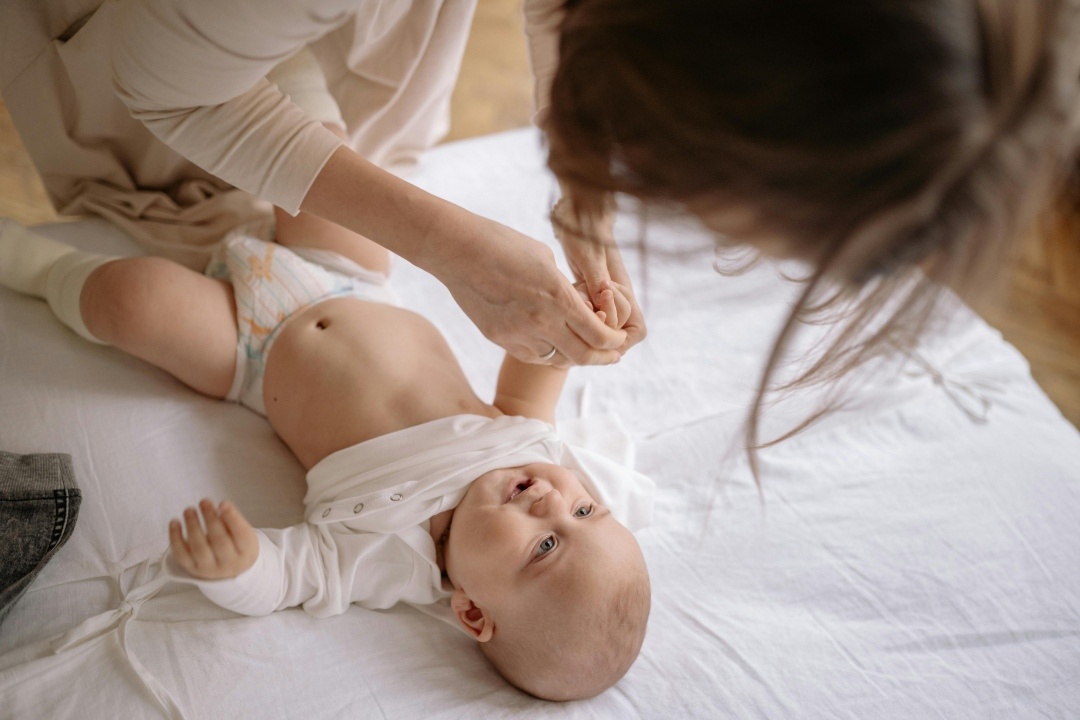
If you’re getting close to your due date, there’s a good chance you’ve searched “hospital bag checklist,” maybe more than once. And while there are plenty of lists out there, we asked experienced birth doula, Giovanna Otavalo, what she actually recommends packing. These are the items that make a real difference physically, emotionally, and logistically during labor and recovery.
What hospitals typically provide
Let’s start with what you don’t need to pack in your hospital bag: many essential items are provided by the hospital or birthing center, and typically stocked in both labor and delivery and postpartum rooms. Provided items typically include:
- Diapers: Your hospital will have plenty of diapers for your little one, ranging from premie sized (under 5 pounds), newborn (up to 10 pounds), and size ones (8-14 pounds).
- Your pump: Hospitals have special hospital-grade pumps and all the accessories you could wish for, including different flange sizes. Leave your pump at home and use theirs.
- Nursing pillows: Most hospital lactation teams have nursing pillows available for you to borrow, or you can ask for extra pillows from your nursing staff to support your positioning.
- Formula: Your nursing staff will have formula available if needed. Only pack formula if you are set on a specific brand or have another reason for using formula in the first few days.
- Towels: A hospital has plenty of towels and you don’t need to pack your own bath towel.
- Wipes: Bringing wipes may be a personal preference; most doulas we surveyed said don’t bother, as hospitals definitely will have wipes available. However, some doulas note that hospital wipes may be dry and often need to be run under water before use (think, thick paper towels).
Packing for you
Essentials
These are the items you don’t want to leave your home without, and if possible, should be packed in your hospital bag at least two weeks before your due date:
- Birth plan: Print out two copies of your birth plan. One copy will stay in your room and the other will be given to your nursing team.
- Driver’s license: You’ll need an accepted form of identification (passport or driver’s license) for both you and your birth partner.
- Health insurance card: Bring both your health insurance card as well as your partner’s, if different and the baby will be added to their plan.
- Wallet: Pack cash for vending machines in case they don’t take cards.
- Pediatrician information: Save to a note on your phone or bring a physical print out with the name, phone number, office address, and fax number of your chosen pediatrician
- List of baby names: Make sure you have the correct intended spelling for social security forms and birth certificate!
- A phone charger: Pack a charger with a really long cord or a rechargeable battery pack.
You can also pre-draft your birth announcement text in your notes app to make copy and pasting the news to everyone easier!
Clothing
You’ll likely change into a hospital gown when you’re admitted, but you will need to pack some clothes for postpartum recovery and the trip home from the hospital:
- Grippy socks or slippers (1)
- Nursing bras (2)
- Button or zip front tops (2)
- Loose bottoms: Aim for bottoms that fit when you were around six months pregnant
- A bath robe: Giovanna always recommends to her birth clients, ”A robe could be a nice item to have after your shower!”
- Going home outfit including loose fitting, easy slip on shoes as your feet may be swollen
Toiletries & personal care
Some new parents love getting back into their full hygiene routine right away, and others treat it like a camping trip with just the bare essentials. At a minimum, Giovanna recommends the following for your hospital bag:
- Toothbrush & toothpaste
- Lip balm
- Hand cream
- Mouth wash
- Hair ties
- Face wash or make up remover wipes
- Sleep mask
- Coconut oil: Giovanna shares, “Coconut oil can be helpful with removing residue from monitor adhesives."
It might also be nice to have your makeup and hair products if you’re taking family photos at the hospital. And, if you have a strong preference on blankets or pillows, you can add those to your hospital packing list, but in general, the hospital has plenty.
Labor support items
As part of your birthing plan, you might define specific comfort measures and special items to pack. Giovanna commonly sees clients plan to pack these items for labor support:
- Bluetooth speaker for your birthing playlist
- Portable fan that can be handheld or clip onto the side of the bed
- Portable white noise machine, or have white noise downloaded to your phone to play through the speaker. This can help drown out some of the hospital background noise and lead to better rest in-between contractions.
- Essential oils, like lavender for calming support
Packing for baby
Your new little one’s first few days will be spent in diapers and swaddles, and they don’t need much from home for their hospital stay. You should plan to pack:
- Car seat, with the base installed in the car, and you have practiced inserting the carrier into the base.
- Going home outfit: Giovanna recommends having two, one in a newborn size and the other 0-3 months. Consider pajamas with footies and a zipper front; no need to play around with socks or snaps when you're getting baby dressed for the first time.
- Saline nasal spray and nasal aspirator to clear any mucus from baby’s nasal passages
Packing for your support person
Birthing partners and support people need their own essentials too. Labor can be long, and having a few comforts packed will make it easier for them to stay present, energized, and ready to support you every step of the way. Include these items in your support person go bag:
- Change of clothes: bring three sets, including pajamas
- Button up or zip front tops for skin to skin time
- Bathing suit, if birthing person plans to use the shower during labor
- Ibuprofen or pain reliever of choice, as the hospital “bed” for support people usually isn’t comfortable
- Comfortable shoes or slippers/gripper socks
- A hip pack or shorts with lots of pockets to keep phone, lip balm, hair ties, pacifiers, and wipes close at hand
- A reusable tote for all the hospital supplies you get to take home at the end of your stay.
Packing your hospital bag is more than just a practical to-do, it’s an act of intention. Having the right comforts at the right time can give you a sense of agency and ease in an unfamiliar environment. The goal isn’t to be perfectly packed; it’s to walk into the hospital with what you need to feel supported, informed, and ready to focus on what matters most – welcoming your baby.








Related articles

Let us care for you
Treat yourself to a better fertility, pregnancy and postpartum experience.











